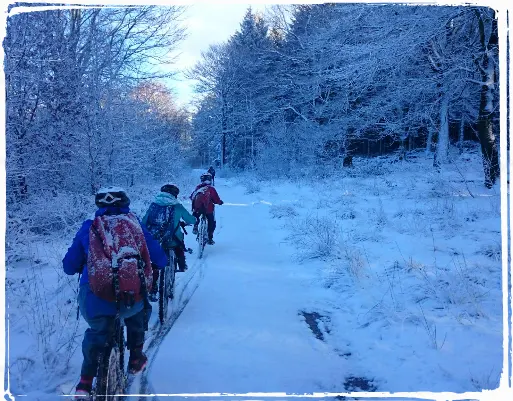LOCATION
East Barnby
DURATION
5 Days | 4 Nights
ACCOMMODATION
From 20 to 120 people

break the ice in the moors…
Starting out in secondary education can be challenging. Our Moorland Ice Breaker programme is designed to help break down barriers between Year 7 students and help new friendships to be formed.
Students will take part in a range of challenging activities in the real outdoors of the North York National Park, where they will need to engage with each other, share decisions, and learn how to support each other.
Our Tutors will guide the experience by enabling each individual to achieve their best and become a valuable part of their group – building on their social skills and creating memoires for a lifetime along the way.
Itinerary
This is an example of an activity package and not a certainty, the Outdoor Education team will build you a specific programme of activities based on conversations with you.
Students go out on activity in groups of 12 so, depending on the number of students on adventure with us – and weather conditions, the order of activities may vary.
MONDAY
Arrive and unpack

River Scramble

Night Line
TUESDAY

Mountainbiking
Night Walk
WEDNESDAY

Kayaking
Mixed Bag
THURSDAY

Sailing

Sledging and Campfire
FRIDAY

Orienteering

Pack and depart

Stories to share and remember
What’s Included?
Once you arrive at our outdoor education centres, everything is included:
Visiting teachers stay free
For every 12 students booked, one visiting teacher stays free of charge + one more extra for the whole group.
All specialist equipment
All sporting equipment and adventure specific helmets and harnesses.
Accommodation
Accommodation for the duration of the visit.
Bedding and linen
Pillows, sheets, duvets, and blankets are all provided.
Specialist clothing
Waterproofs, wellies and wetsuits, when required. Ideally students should bring their own wellies, but we have plenty on hand to lend.
Transport
Once at the centre, all transport to and from adventure activities is provided.
Experienced, full-time, outdoor teachers and tutors
Each group of 12 students is led by a fully qualified and experienced outdoor tutor.
Resources
Everything you need to know about booking and staying with Outdoor Education North Yorkshire.
Curriculum Links
A meaningful residential visit isn’t only about having fun, making new friends, building confidence, learning to work together as a team, and developing an appreciation for our natural environment… it’s also about weaving interesting content into outdoor activities that enrich the curriculum which benefits students when they are back in the classroom.
River Scramble
Geography: Weather
Students will learn to consider the weather and the effects it will have on the activity and the venue. They will learn about forecasting, where to find a forecast, and where our weather comes from.
Science: Geology
The group will learn to identify rock types and the effects of erosion in the forming of gorges and valleys.
Mountain Biking
Geography: Human and physical
Whilst mountain biking, students can be introduced to the physical features they come across – be it coastal features, mountain features, or from streams and rivers. Local human geography can also be explored such as industries and local settlements.
Science: Forces and motion
Students can learn all about the forces associated with mountain biking, and the challenges of gaining motion. Bike gearing systems are explained and used, and how these aid the cyclist can be explored. Braking will be introduced, and the differences in the ability to stop learnt depending on surface type and angle of slope.
Kayaking
Design and Technology
Students can learn all about the design of the kayak and how materials have developed over time. They can also learn how balance and trim effects the performance of the craft.
History: Local
Local history and the influence of the waterway can be explored in detail. Students can learn about what the areas close to the waterway were used for, now and in the past, and how this has changed over time.
Sailing
Science: Forces and motion
Students can learn about the forces involved in making a sailboat move, how sails work and the forces that cause the boat to slow down. They can also explore what affects the acceleration of a sailboat.
Geography: Human
Students can learn about where they are sailing – how this was shaped by humans, and past and present industrial activity.
Orienteering
Geography: Maps
Students can be introduced to orienteering maps, their key features, scales, and uses. They will then be taught how to start using these as an important tool in navigation and identifying the surrounding area to them.
Maths: Ratio and proportions
Scales can be used from the maps to measure the distance of the course to be completed. Times can then be estimated based on speed. The legs of the course can be broken down into sections, and ratios applied to the times or distance of each leg.
LOCATION: East Barnby
DURATION: 4 Nights | 5 Days
ACCOMMODATION: From 12 to 120 people
break the ice in the moors
Starting out in secondary education can be challenging. Our Moorland Ice Breaker programme is designed to help break down barriers between Year 7 students and help new friendships to be formed.
Students will take part in a range of challenging activities in the real outdoors of the North York National Park, where they will need to engage with each other, share decisions, and learn how to support each other.
Our Tutors will guide the experience by enabling each individual to achieve their best and become a valuable part of their group – building on their social skills and creating memoires for a lifetime along the way.
Itinerary
The combination of activities in the following itinerary have been carefully chosen to bring out the best of real outdoor education adventure for students in Year 7. Please let us know when making your booking if you would like any of the activates changed or if you have any specific curriculum themes you would like us to focus on. Students go out on activity in groups of 12 so, depending on the number of students on adventure with us – and weather conditions, the order of activities may vary.
MONDAY

Arrive and Unpack | River Scramble | Night Line
TUESDAY

Mountain Biking | Night Walk
WEDNESDAY

Kayak | Mixed Bag
THURSDAY

Sailing | Night Sledging and Camp Fire
FRIDAY

Orienteering | Pack and Depart | Stories to Share
What’s Included?
Once you arrive at our outdoor education centres, everything is included:
Visiting teachers stay free
For every 12 students booked, one visiting teacher stays free of charge + one more extra for the whole group.
All specialist equipment
All sporting equipment and adventure specific helmets and harnesses.
Accommodation
Accommodation for the duration of the visit.
Food
Three meals a day, except for day of arrival and departure.
Bedding and linen
Pillows, sheets, duvets, and blankets are all provided.
All specialist clothing
Waterproofs, wellies and wetsuits, when required. Ideally students should bring their own wellies, but we have plenty on hand to lend.
Transport
Once at the centre, all transport to and from adventure activities is provided.
Experienced, full-time, outdoor teachers and tutors
Each group of 12 students is led by a fully qualified and experienced outdoor tutor.
Curriculum Links
A meaningful outdoor education adventure isn’t just about fun and games. It’s about weaving content into each adventurous activity that will benefit students when back in the classroom…and in the wider world.
River Scramble
Geography: Weather
Students will learn to consider the weather and the effects it will have on the activity and the venue. They will learn about forecasting, where to find a forecast, and where our weather comes from.
Science: Geology
The group will learn to identify rock types and the effects of erosion in the forming of gorges and valleys.
Mountain Biking
Geography: Human and physical
Whilst mountain biking, students can be introduced to the physical features they come across – be it coastal features, mountain features, or from streams and rivers. Local human geography can also be explored such as industries and local settlements.
Science: Forces and motion
Students can learn all about the forces associated with mountain biking, and the challenges of gaining motion. Bike gearing systems are explained and used, and how these aid the cyclist can be explored. Braking will be introduced, and the differences in the ability to stop learnt depending on surface type and angle of slope.
Kayaking
Design and Technology
Students can learn all about the design of the kayak and how materials have developed over time. They can also learn how balance and trim effects the performance of the craft.
History: Local
Local history and the influence of the waterway can be explored in detail. Students can learn about what the areas close to the waterway were used for, now and in the past, and how this has changed over time.
Sailing
Science: Forces and motion
Students can learn about the forces involved in making a sailboat move, how sails work and the forces that cause the boat to slow down. They can also explore what affects the acceleration of a sailboat.
Geography: Human
Students can learn about where they are sailing – how this was shaped by humans, and past and present industrial activity.
Orienteering
Geography: Maps
Students can be introduced to orienteering maps, their key features, scales, and uses. They will then be taught how to start using these as an important tool in navigation and identifying the surrounding area to them.
Maths: Ratio and proportions
Scales can be used from the maps to measure the distance of the course to be completed. Times can then be estimated based on speed. The legs of the course can be broken down into sections, and ratios applied to the times or distance of each leg.
Resources
Everything you need to know about booking and staying with Outdoor Education North Yorkshire.
Learning Outcomes
PERSONAL GROWTH
Students will be challenged and supported to achieve their best – building confidence, developing resilience, and becoming more aware of their own capabilities. Personal qualities will be developed through having to support peers, solve problems, and think creatively.
SOCIAL SKILLS
Working with others and understanding their part in a team will be fundamental during this week – working together to sail a boat, supporting each other through difficult challenges, and sharing decisions on how to overcome obstacles. Students will be encouraged to understand their emotions and how their actions can affect members of their team.
ENVIRONMENTAL AWARENESS
Enjoying time spent outdoors is a key part of this programme. Students will learn to appreciate the benefits of what the outdoors can offer us and in return, the responsibility we have to protect it.
Travel Times
Middlesbrough
40 Minutes
York
1 Hour 15 Minutes
Newcastle upon Tyne
1 Hour 30 Minutes
Harrogate
1 Hour 30 Minutes
Sheffield
2 Hours 20 Minutes
Middlesbrough
40 Minutes
York
1 Hour 15 Minutes
Newcastle upon Tyne
1 Hour 30 Minutes
Harrogate
1 Hour 30 Minutes
Sheffield
2 Hours 20 Minutes